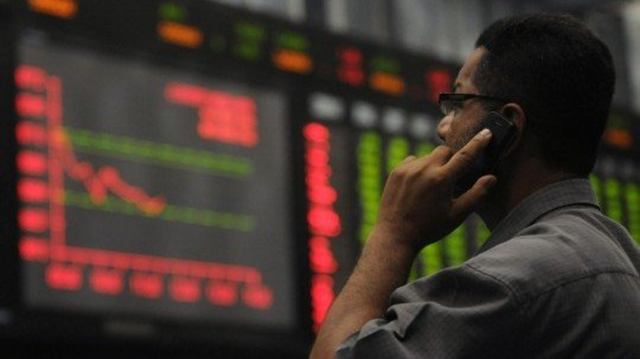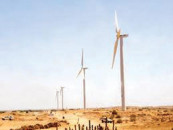PSX faces volatility amid political uncertainty
KSE-100 index lost 810 points, or 1.3% WoW, settles at 63,002.92

The Pakistan Stock Exchange (PSX) witnessed a tumultuous week marked by political uncertainty, a lack of positive triggers, and growing concerns on the political front, impacting investor sentiment. Challenges related to fiscal reforms, particularly in circular debt and state-owned enterprises (SOEs), also contributed to cautious investor behaviour ahead of the State Bank of Pakistan’s (SBP) monetary policy announcement.
A significant event during the week was the SBP’s decision to maintain the benchmark policy rate at a record high of 22% for the fifth consecutive time over the past seven months. Additionally, the SBP reported a decline in foreign exchange reserves by $54 million to $8.2 billion for the week. Despite the volatility, some positive indicators emerged on the macroeconomic front. Robust earnings and export data provided a silver lining amidst the uncertainties.
The market started the week with a loss of over 1,000 points on Monday due to uncertainties regarding fiscal reforms and challenges faced by SOEs. Political and security concerns further dampened the market on the following day. However, the market rebounded on Wednesday, rising modestly by nearly 140 points despite the lack of encouraging triggers.
Bulls staged a comeback on Thursday, propelling the KSE-100 index up by over 400 points as investors welcomed the news that elections would proceed as scheduled despite political noise. The positive momentum continued on the next day, with the market adding another nearly 610 points following robust export data showing a year-on-year surge of 26.9% to $2.786 billion in January. However, despite these fluctuations, the benchmark KSE-100 index concluded the week with a loss of 810 points, or 1.3%, settling at 63,002.92.
JS Global analyst Shagufta Irshad noted a bumpy ride for the index, reporting a decline of 810 points on a week-on-week basis. Political developments took centre stage, with investors largely ignoring corporate announcements.
On the macroeconomic front, the Consumer Price Index (CPI) inflation stood at 28.3% year-on-year for January 2024, with a month-on-month uptick of 2.9% in food inflation. The SBP’s decision to keep the Policy Rate unchanged at 22% aligned with market expectations, with hints of potential disinflation and softening interest rates going forward. The country’s primary balance for 1HFY24 exceeded the IMF’s proposed performance criteria of Rs1.42 trillion.
Read Lack of economic agenda tests PSX
Forex reserves remained stable at $8.2 billion for the week, while the trade deficit for January 2024 increased by 7% month-on-month to $1.95 billion. Petrol prices saw an increase of Rs13.55 per litre, and diesel prices rose by Rs2.75 per litre due to an increase in ex-refinery prices.
Arif Habib Limited (AHL) reported that the market remained depressed during the week due to political noise and uncertainty related to circular debt resolution. The SBP’s decision to keep the benchmark policy rate unchanged and a decline in headline inflation for January 2024 contributed to market dynamics.
Despite a 4% year-on-year fall in petroleum sales and a 25% year-on-year reduction in the trade deficit for January 2024, the market closed at 63,003 points, losing 810 points, or -1.3% week-on-week.
Sectors contributing to the index’s strength included automobile assemblers, cable and electrical goods, insurance, and pharmaceuticals. Foreign selling continued at $9.7 million, with major selling observed in commercial banks and cement. On the local front, buying was reported by insurance companies and broker proprietary trading.
Key news during the week included a 13% fall in oil sales in July-Jan, foreign investors withdrawing $37 million in January, a government hike in petrol prices, a cut in development funds by Rs114 billion, and rice exports at 16-year high prices. AHL expects the market to remain range-bound in the upcoming week as investors closely monitor the General Elections on 8th Feb’24.
Published in The Express Tribune, February 4th, 2024.
Like Business on Facebook, follow @TribuneBiz on Twitter to stay informed and join in the conversation.


















COMMENTS
Comments are moderated and generally will be posted if they are on-topic and not abusive.
For more information, please see our Comments FAQ